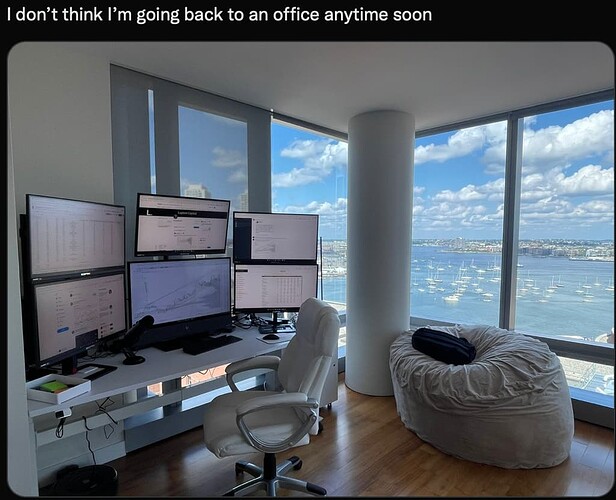if I’m a C.E.O.why shouldn’t my response just be, look, this hybrid approach isn’t working? We had something great before in 2019. Let’s just make everyone come back into the office. Why isn’t that the right response here?
Well, I think some places have tried that, and I think that they’ve had a fair amount of attrition, especially amongst people for whom that flexibility has become nonnegotiable. A lot of the data that Charlie and I rely on, and that we frequently cite, comes from Slack’s Future Forum, and what they found is that mothers and fathers, in particular, not just want a flexible work schedule, but demand one. And if they can’t have it, if they’re threatened with it going away, they’re already looking for jobs if they haven’t left already.
And so I think that if you hire a company that’s like, we only want a certain type of person, we don’t want any parents or any people with caretaking responsibilities, and we also don’t care about these feelings of inclusion within our workplace, because, again, we’re thinking about this data that shows that people of color in the workplace feel more inclusion, feel more comfortable, in hybrid and remote scenarios, you’re essentially setting yourself up to put yourself on a trajectory going backwards in time as a company instead of forwards.I think that there is this overwhelming feeling amongst white male executives that the office was a neutral space, and I think that leaders who are smart are coming to understand that just because it was a space that felt comfortable and productive for me did not mean that it felt that way to others.
The Stanford economist Nick Bloom, who I think has done some of the best work generally on remote work, him and some co-authors just released what I really think of as the gold standard study on hybrid versus in-person work. They did this huge randomized control trial of something like 1,600 workers in a tech company.
So these were computer engineers, folks in marketing, finance, et cetera. Some were in the office five days a week. Others had a hybrid schedule working from home two days a week, and the results were really striking. Among the hybrid employees, quit rates were 35 percent lower, which is really important when you consider just how much attrition costs a company in terms of rehiring and retraining. People’s self-reported happiness and work/life balance went way up, and productivity actually improved slightly. There was one measure they did where they looked at literally the most objective measure I think you can. Lines of code written went up around 7 percent. And what really struck me about that was, to the conversation we’ve been having, a lot of hybrid arrangements are kind of a mess right now, and yet hybrid work is still outperforming full time office work on all of these measures, which I think is just really telling.






